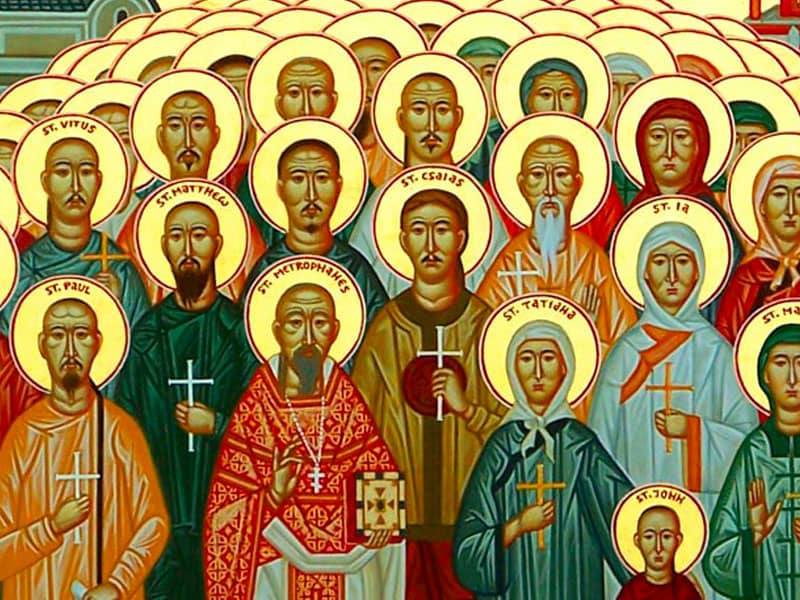Ferder: In our society sexuality is either sensationalized or joked about or even ridiculed. Sex is seldom acknowledged for what it is: the energy of attraction, the continuation in us of the creativity of the universe, endowed by evolution.
Heagle: As teachers and therapists, we see every day that people hunger for the chance to see the connections between sexuality and spirituality; they want to find ways to live responsible sexual lives.
Ferder: Responsible sexuality has to do with how we respond authentically and truthfully to the energies of attraction and connection. Responsible sexual activity in practice is faithful, truthful, honest, celebratory and joyful. It thinks about consequences both for oneself and for the other person. It's connected to other aspects of one's life. It's not something cut off from one's spirituality, thinking, one's deepest desires, goals in life.
Heagle: We Christians say that the role and purpose of love is ultimately to lay down one's life for others. But you can't lay down your life if you haven't taken it up. We have to learn what it means to engage our sexual energy, our relational commitments and to be mutually supportive of each other. Taking up our life is both a spiritual discipline as well as a joyful experience.
NCR: Spirituality and sexuality really need each other?
Heagle: The message I got in the seminary was that if you are going to be spiritual you can't be sexual. One cancels out the other. Or, to the extent you are sexless, to that extent you are holy. But every person is called to be a lover and life-giver.
Ferder: If we don't take our sexual energy seriously, it catches us off guard, blindsides us, pops up in unexpected ways.
We co-teach a Christian sexuality course at Seattle University to graduate students, prefacing the class by saying there are no stupid questions, that everyone's experience matters. No one's experience is normative for everyone else, but everyone's experience must be respected. We try to create a safe environment. One of our dreams and hopes is that small Christian communities and Catholic parishes could be places where it's safe enough that people can bring their sexual questions, their concerns, failures, disagreements or agreements with church teachings, their convictions, and know that there is a welcome space there where it can all be explored.
NCR: In your book you label sexual sin as violation of persons. Are these kinds of sins primarily relationship problems?
Heagle: Catholic moral teaching pointed out sexual sin is illicit pleasure. That suspicion of pleasure goes back to St. Augustine, who felt that all pleasure is disordered. We know now that pleasure is a built-in bodily response that is part of our physiological makeup, put there by evolution for the continuation of the species. There is nothing disordered about it. It's the relational context of human sexuality that creates the ethical demand, not our human nature. When sexual relationships become abusive, dishonest or exploitative, the bonds of mutuality and respect are broken. Adultery and abusive relationships are no longer life enhancing and life giving.
Ferder: Our tradition often uses the two terms chastity and celibacy interchangeably, equating the two. It shows up in teen chastity programs. We usually don't teach teens to be reverent toward themselves and one another in their relationships. Rather we tell them to just say no right at the time when their sexual urgency is at its peak. Chastity, we think, has less to do with what we do or don't do with our genitals but what we do with our hearts. It has to do with how we treat people in relationships, how much reverence we show ourselves and others. I can be chaste while sexually active or celibate. All of us are called to chastity, to treat one another with dignity, respect and truth, That's the ultimate meaning of chastity. It's sustainable sexuality.
Heagle: We need to teach teens not so much what to say no to, but what to say yes to.
Celibacy doesn't just mean not having sex; it's a different way of loving. It's not a higher level of loving, just a different one. Celibacy is something that one can devote one's life to for the sake of service, relationships and community. Or one can be celibate for a time and then move on. On the other hand, the church needs to finally recognize the profound sacredness of marriage and covenantal partnerships.
Ferder: This discussion must go on. If we can move beyond the church crisis to asking the questions, discussing sexuality and spirituality in an honest, forthright way, we will have taken a big step toward health and healing. John and I are committed to the book's vision. The church needs to take the issue of sexuality and people's experiences and stories around it so much more seriously. It's the issue that will make or break us.

